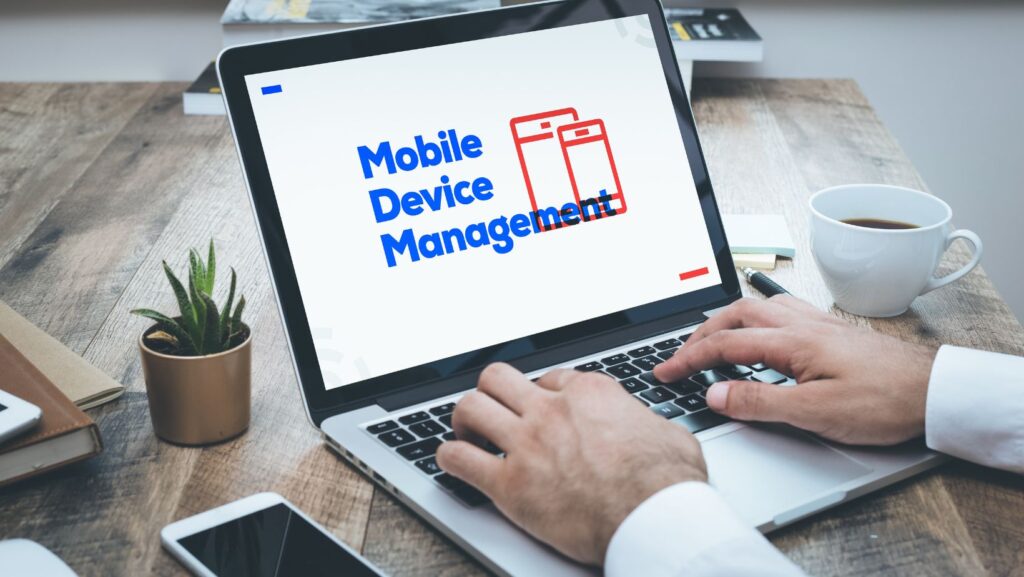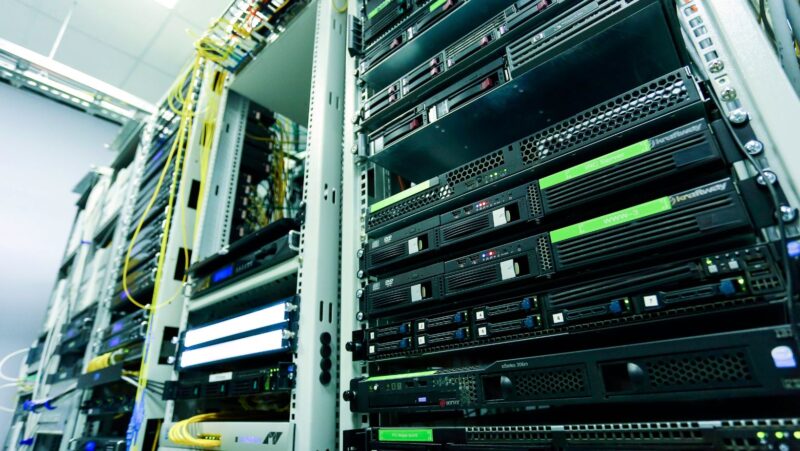
In today’s fast-paced digital landscape, managing mobile devices within an organization has become a critical component of maintaining security, efficiency, and operational control. The rise of remote work and the widespread use of mobile technologies have introduced both opportunities and challenges for IT teams. Mobile Device Management (MDM) solutions play a vital role in addressing these challenges by offering comprehensive features that streamline device management, enforce security policies, and enhance IT efficiency. Among the leading platforms in this space, Hypori stands out for its innovative approach to secure mobile access and device control.
This article explores the key features of Mobile Device Management that empower IT departments to maintain robust control over their mobile environments while improving efficiency. We will also highlight how Hypori’s advanced technology integrates with these features to provide a seamless and secure mobile experience.
The Growing Importance of Mobile Device Management
As organizations continue to adopt mobile-first strategies, the number and diversity of devices accessing corporate data have surged dramatically. Employees use smartphones, tablets, and laptops to access sensitive information, often outside traditional office settings. This trend exposes enterprises to heightened security risks, including data breaches, malware attacks, and unauthorized access.
Mobile Device Management addresses these concerns by providing a centralized platform to monitor, manage, and secure devices connected to the corporate network. MDM solutions enable IT teams to enforce security policies, configure device settings remotely, deploy applications, and protect data—all from a unified console. These capabilities are essential for safeguarding corporate assets and ensuring compliance with industry regulations.
Core MDM Features That Enhance IT Efficiency
MDM platforms come equipped with a range of features designed to simplify device management and reinforce security. Understanding these features helps IT professionals select and implement solutions that align with their organizational goals.
-
Centralized Device Enrollment and Configuration
One of the foundational capabilities of MDM is centralized device enrollment. IT administrators can onboard new devices remotely, pushing standardized configurations, security settings, and necessary applications. This process ensures consistency across all managed devices and reduces manual intervention.
Through automated provisioning, IT teams save time and avoid configuration errors that can lead to security vulnerabilities. Whether employees bring their own devices or use company-owned hardware, centralized enrollment helps maintain control and visibility from the outset.
-
Remote Monitoring and Real-Time Management
MDM platforms offer real-time monitoring of device status, usage, and compliance. Administrators receive alerts about unusual activities or policy violations, enabling quick intervention. For instance, if a device becomes non-compliant due to outdated software or security settings, the system can notify IT staff immediately.
Remote management tools allow IT to troubleshoot issues, update software, or reset passwords without needing physical access to the device. This capability is especially valuable for supporting distributed workforces and reducing downtime.
-
Policy Enforcement and Compliance Management
Security policies are at the heart of effective MDM. These policies govern password requirements, encryption, application usage, and network access, among other aspects. An MDM solution enforces these policies uniformly across all devices, minimizing the risk of weak security postures.
Many industries have stringent compliance requirements, such as HIPAA for healthcare or GDPR for data privacy. MDM helps organizations meet these regulations by providing audit trails and ensuring devices adhere to mandated standards.
-
Application Management
Managing applications is critical for maintaining both productivity and security. MDM solutions enable IT teams to deploy, update, and restrict applications on managed devices. They can blacklist or whitelist apps, preventing users from installing unauthorized or risky software.
This level of control ensures that only approved business tools are used, reducing the risk of data leakage or malware infections. Additionally, application management supports enterprise app stores, making it easier for users to access approved resources.
-
Data Protection and Secure Access
Protecting corporate data on mobile devices is paramount. MDM platforms implement encryption protocols, secure containers, and data loss prevention mechanisms to shield sensitive information. They can isolate corporate data from personal apps on BYOD devices, preventing accidental or intentional data sharing.
Furthermore, secure access features, such as VPN integration and multi-factor authentication, strengthen the security perimeter. These controls limit access to authorized users and reduce the attack surface.
-
Automated Compliance Reporting
Regular reporting is essential for maintaining security posture and preparing for audits. MDM solutions generate automated compliance reports, detailing device health, policy adherence, and security incidents. These reports provide valuable insights for IT decision-making and help demonstrate compliance to regulators.
How Hypori Enhances MDM Capabilities
While traditional MDM features lay the groundwork for device management, Hypori introduces a new dimension of security and efficiency through its virtual mobile infrastructure (VMI) technology. Hypori transforms mobile device management by isolating corporate environments from personal devices, enabling secure mobile access without compromising user experience.
Hypori’s Virtual Mobile Infrastructure
Hypori’s platform creates a virtual mobile workspace that runs in a secure cloud or on-premises data center. Instead of storing corporate data on physical devices, the work environment exists entirely within this virtual infrastructure. Users interact with a virtual Android environment streamed to their devices, effectively separating personal and corporate spaces.
This separation offers significant security benefits. Since no corporate data resides on the endpoint device, the risk of data leakage through lost or stolen devices is drastically reduced. Moreover, Hypori enables IT teams to centrally manage the virtual workspace with granular control over applications, data, and network access.
Improved IT Efficiency Through Hypori
Hypori complements traditional MDM by simplifying device management and enhancing security protocols. IT administrators benefit from centralized control over the virtual mobile environment, allowing them to apply consistent policies, monitor sessions in real-time, and quickly respond to security incidents.
The platform’s architecture reduces the complexity of managing diverse devices and operating systems, as all users access the same virtual workspace regardless of their physical device. This unification streamlines support and policy enforcement, boosting overall IT efficiency.
Enhanced Security and Compliance
By leveraging Hypori’s VMI, organizations can better comply with stringent data protection regulations. The virtual environment ensures data never leaves the secure infrastructure, eliminating many common risks associated with mobile devices. IT teams maintain visibility and control over all corporate interactions, facilitating robust compliance reporting.
Hypori also supports seamless integration with existing MDM solutions, allowing organizations to layer an advanced virtual mobile infrastructure over their current management framework. This integration enhances security without disrupting user productivity.
Real-World Impact of MDM with Hypori Integration
Organizations adopting MDM solutions combined with Hypori’s virtual mobile infrastructure experience tangible benefits in operational efficiency and security posture.
For IT teams, the ability to manage devices and virtual workspaces from a single console reduces administrative overhead. Automated processes for device enrollment, application deployment, and policy enforcement free up resources to focus on strategic initiatives. The reduction in security incidents and data breaches lowers risk and potential compliance penalties.
Employees enjoy the convenience of accessing corporate resources securely from any device without sacrificing performance. The virtual mobile environment provides a consistent user experience while safeguarding sensitive information. This balance promotes productivity and satisfaction.
From a business perspective, improved IT efficiency and control contribute to cost savings by minimizing device-related support calls, reducing the need for specialized hardware, and avoiding expensive data breaches. Enhanced security and compliance build customer trust and protect brand reputation.
The Future of Mobile Device Management
As mobile technologies evolve, so will the demands on device management solutions. Emerging trends such as edge computing, 5G connectivity, and artificial intelligence integration will shape the future capabilities of MDM platforms. Organizations must remain agile, adopting innovative solutions like Hypori to maintain security and efficiency.

Additionally, MDM solutions will continue to enhance automation and analytics, enabling proactive management and faster threat detection. Integration with broader enterprise security architectures will also deepen, creating unified defense systems.
Conclusion
Mobile Device Management is an indispensable tool for IT departments seeking to secure and streamline their mobile environments. Its core features—centralized enrollment, remote management, policy enforcement, application control, and data protection—form the foundation of efficient device management. Hypori’s innovative virtual mobile infrastructure extends these capabilities by isolating corporate data within secure virtual environments, enhancing security and simplifying IT operations.
By leveraging comprehensive MDM features alongside Hypori’s technology, organizations can achieve greater control, reduce risks, and boost IT efficiency. This combination supports modern workforce demands while safeguarding critical data assets. As mobile device usage continues to grow, investing in advanced MDM solutions remains a strategic priority for any forward-thinking enterprise.










